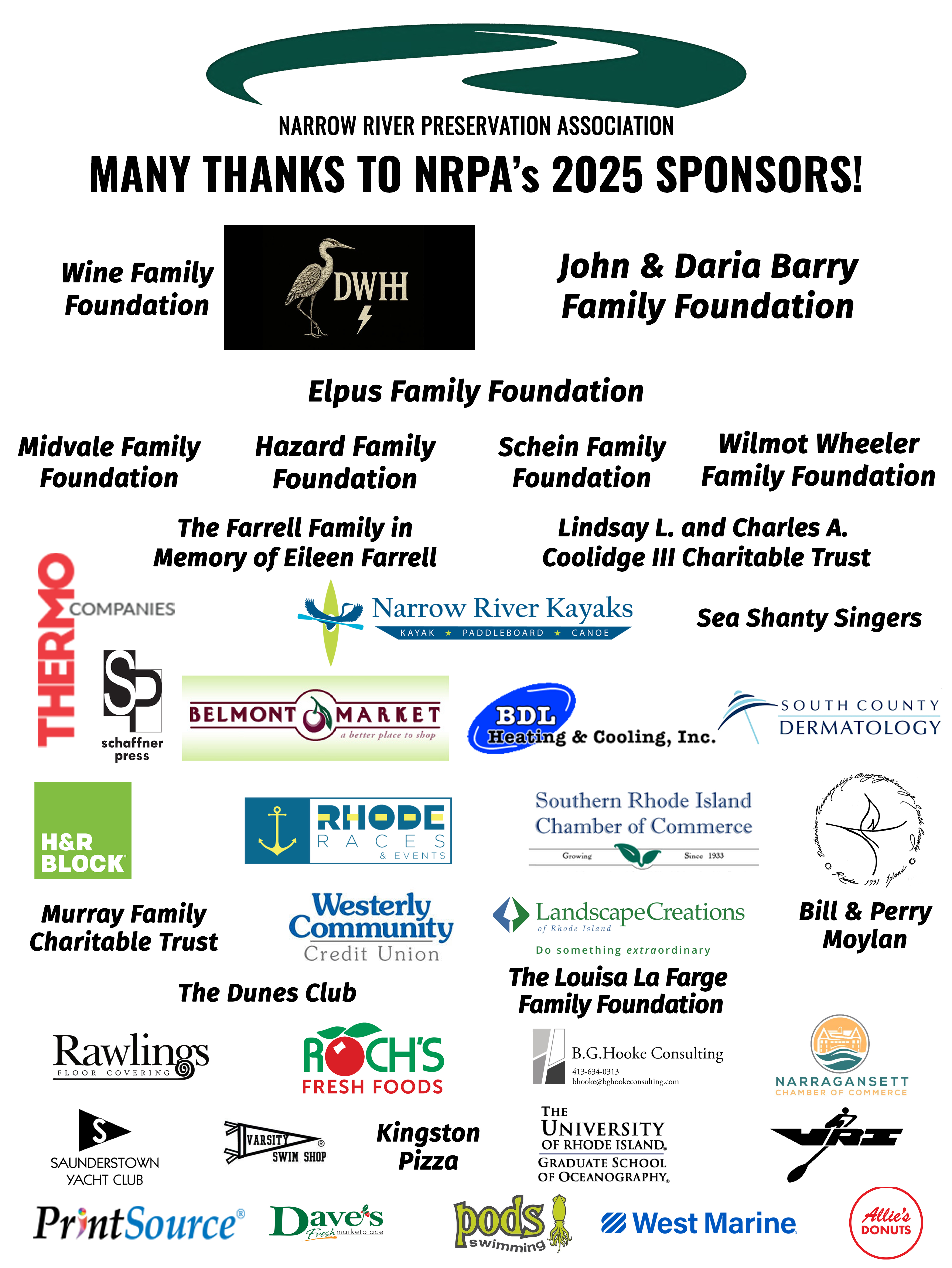April 2017

saltgrass (Disticis spicata)

cordgrass (Spartina alterniflora)
Narrow River Preservation Association is working with the US Fish and Wildlife Service on the next phase of the Narrow River salt marsh restoration project.
While the marsh has historically been underwater only at “spring” (new and full moon) tides, in recent years, due to sea level rise, the majority of the marsh is being flooded too frequently for the marsh grasses to thrive.
This winter, in partnership with the Nature Conservancy and the Coastal Resource Management Council, US Fish and Wildlife completed the dredging phase of the restoration project.
During this phase, using a method called thin layer deposition, crews dredged specific areas of the lower Narrow River and then dispersed the dredged material onto the surface of the marsh to raise the elevation. In areas where the elevation has been raised 3 inches or more, volunteers will soon plant marsh grass seedlings (plugs).
Marsh areas at the increased elevation will flood less frequently, which will hopefully increase the lifespan and resilience of the marsh to future sea level rise and other stressors.
Last fall, US Fish and Wildlife collected local seeds from three different types of salt marsh grasses along Narrow River. Since then, a nursery has been growing the seedlings (plugs).
Around the first of May, 35,000 plugs will be ready to plant.
The salt marsh grasses to be planted are cordgrass (Spartina alterniflora), saltmarsh hay (Spartina patens), and saltgrass (Disticis spicata).
The planting will occur over two or three days, with a morning and an afternoon shift each day. Volunteers will be able to choose which shifts they would like to work.
Volunteers are advised to dress for the weather. The work will be messy and rubber boots are encouraged. Helpers of all ages are welcome and NRPA is working with school groups who plan to volunteer. USF&WS will provide all of the needed tools and supplies as well as water and snacks.
The volunteer response at press time has been outstanding. Nearly 200 individuals and several groups have signed up to volunteer.
Many hands will make quick work of the 35,000 plugs.






